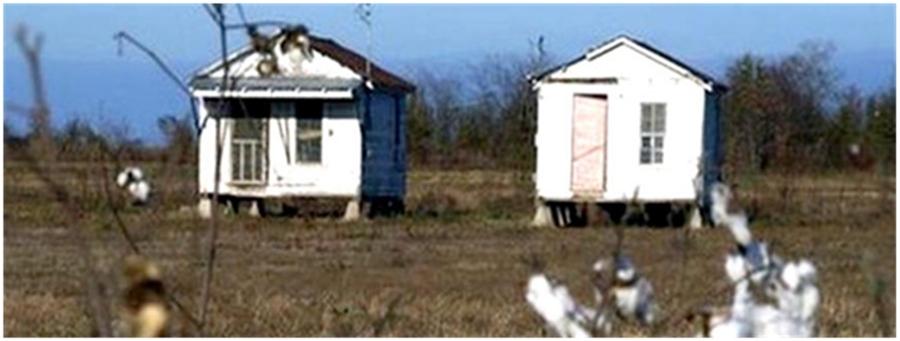
~ Delta Poetry Review ~
Carolyn Hembree's Book Review by Stephen Furlong
Hembree, Carolyn.
For Today:
Poems. Louisiana State University
Press 2024. 96 pp. $19.95
 In
a recent interview housed on the blog for The University of
Arizona’s Poetry Center, 1508, I took to heart and mind the
collaboration between Stacey Balkun and Carolyn Hembree. Balkun, the
author of Sweetbitter (Sundress Publications, 2022) is
incisive with her questioning and Hembree is generous with her
answers. The correspondence is engaged with the multi-faceted ways
of poetry. In that vein, Hembree speaks to the relationship between
poetry and truth, offering this idea: “I like that because I think
of poetry as elastic—able to hold contradictions, ambivalence,
paradox, a whole world that exists before and after my life. Once a
person has learned some conventions, overheard more than a few
poems, written a while and kept writing, that individual is as ready
as anyone to get out of the way and let the poem decide the
parameters of responsibility” (FOR TODAY: An Interview with Carolyn
Hembree, 1508). What a line! Trust me reader, the rest of
that interview is just as thought-provoking and memorable.
In
a recent interview housed on the blog for The University of
Arizona’s Poetry Center, 1508, I took to heart and mind the
collaboration between Stacey Balkun and Carolyn Hembree. Balkun, the
author of Sweetbitter (Sundress Publications, 2022) is
incisive with her questioning and Hembree is generous with her
answers. The correspondence is engaged with the multi-faceted ways
of poetry. In that vein, Hembree speaks to the relationship between
poetry and truth, offering this idea: “I like that because I think
of poetry as elastic—able to hold contradictions, ambivalence,
paradox, a whole world that exists before and after my life. Once a
person has learned some conventions, overheard more than a few
poems, written a while and kept writing, that individual is as ready
as anyone to get out of the way and let the poem decide the
parameters of responsibility” (FOR TODAY: An Interview with Carolyn
Hembree, 1508). What a line! Trust me reader, the rest of
that interview is just as thought-provoking and memorable.
As a young poet, I remembered being caught in the duality of influence; many of my poems started off with a resonant line of poetry or something I heard. I was never afraid of “sounding like someone else” so much as not knowing yet what my voice was. In my formative years of writing, I was twenty-plus hours away from the pain and comfort of my hometown. In my first year as a collegiate student I took an Introduction to Creative Writing class; one of the texts for that class was A Little White Shadow by Mary Ruefle (Wave Books, 2006). The collection of “found poetry” is an erasure text and, what remains, is a wholly and totally new text steeped in the tradition of a text from an earlier time.
In time, I learned about the ways poetry can exist in a multitude of different ways and, like a detective taking multiple pieces of evidence to draw a hypothesis for how a crime was committed, a poet can take a variety of influences to create a poem central to their line of vision. To that end, Carolyn Hembree is both detective and poet and what remains is a lasting collection; For Today (Louisiana State Press, 2024) is ambitious in its vision, and the rewards of the collection stay long after the initial reading and encourages re-visitation.
For Today is split across four sections and, in addition to the long poem of which the book is named after, Carolyn Hembree utilizes haiku and fantasia to explore poetry’s elasticity. The poems investigate motherhood, parental grief, ecological disaster, and global pandemic, among other influences. Hembree’s work is also chiefly concerned with influence—that influence is seen through classical and musical allusions littered throughout her poems. Take, for example, “Some Measures,” the first poem of the book—a sonnet crown.
Small aside: A sonnet crown is a seven-sectioned sequence of sonnets linked by the last line of each section becoming the first line of the next section and has a cohesive theme; “Some Measures” serves as an elegy to Hembree’s deceased father.
In addition to the employ of a sonnet-crown, “Some Measures” uses a barrage of allusion; some of the allusions refer to The Violent Femmes, Sir Walter Raleigh, and Rainer Maria Rilke (by way of a translation from Hembree’s father) and appear as anchors for the poem. In Section 2, Hembree writes:
Swan songs we liked fade in. You loved your grief
to shy behind some earworm (Fugs, Beefheart)
How you’d sing “Wide, Wide River” nights ER docs
said mother was so strung out. Femme walking
un bébé, I hear “Blister in the Sun” and your heart
bursts again…
The precision of Hembree’s details truly allows for the memory, the honoring, of a loved one to shine in this poem. And it’s so devastatingly true how a song can teleport us to moments of love and loss, grief and remembrance. Brian Turner, who lost his wife—the celebrated poet Ilyse Kusnetz—spoke to this idea in a Guernica interview with Rick Moody from a couple of years back. In speaking of the sheer catalog of work that Kusnetz left behind, Turner says “And I was lost, too, and in many ways still am. This music has served as a kind of anchor to her, to her voice, her narration to her own journey” (“Brian Turner: A Music that Suits Our Time on the Planet,” Guernica). So, too, does the Violent Femmes conjure such a kind of anchor between Hembree and her father. “Some Measures” also poses heart-wrenching questions, especially at the close of Section 4:
…When will you let me go?
Something to bow down to, I know, but what
of this world would you want for me, Father,
beyond beer gardens, a baby, these cut flowers?
In these moments, I also find that Carolyn Hembree’s poems pose questions to poetry as a form:
Why do we go to poetry for answers?
What hope does poetry provide in moments of such desolation and grief?
And something I’ve come to realize is that poetry itself does not answer these questions, but it is through collaboration between poet and reader that answers are found—it is this joint effort that reminds me time and time again why I am drawn to poetry. Not so all my questions get answered, but to challenge me on what questions I’m asking and to ground me in the possibility of multiplicity. Or, to borrow Hembree’s word, the elasticity of poetry.
“For Today”, as long poem, serves as both cartographer and map and calls attention to a multitude of experiences and circumstances. Each page unrolls like a ball of yarn weaving a blanket. It poses such questions as:
“What did I dream last night in the rocker with this poem on my lap?”
“[mental note: what is my?]”
“And clouds—yes, I look up—but what are they?”
“But which way home?”
The poem is inquisitive and speaks to the breadth that Hembree explores, and it’s refreshing to see how these questions push forth the exploration and the poem itself.
Time and time again, I struggled to put this book down because I kept on wanting to know what magic Hembree would continue to invoke through her words. It’s a testament to Hembree’s authority in writing that such breadth can exist in one poem—what’s even more stunning is that “For Today” serves as the foundation of the book—and helped me to know For Today was going to remain with me.
Carolyn Hembree's Interview
Carolyn Hembree's
Poems and Bio
| Archive | Submissions | About | News |